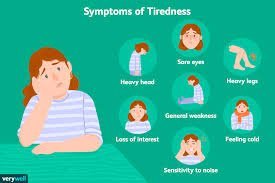Improved Sleep Quality: How to Sleep Better Every Night
To improve sleep quality and ensure a restful night's sleep every night, consider establishing a consistent sleep routine. Prioritize going to bed and waking up at the same time each day to regulate your body's internal clock. Create a calming pre-sleep ritual by engaging in activities such as reading a book, taking a warm bath, or practicing relaxation techniques.

Introduction
A good night’s sleep is essential for overall health and well-being. However, many people struggle with falling asleep, staying asleep, or waking up feeling refreshed. Poor Sleep Quality can impact mental clarity, mood, and even physical health. This comprehensive guide will help you understand the factors that influence sleep quality and provide actionable steps to improve it.
The Importance of Sleep
Sleep is not just a passive activity—it is a vital process that supports various bodily functions, including:
-
Physical restoration: Sleep helps the body repair tissues, grow muscles, and synthesize proteins.
-
Cognitive function: Memory consolidation and problem-solving skills improve with quality sleep.
-
Emotional well-being: Poor sleep increases stress and anxiety, leading to mood disorders.
-
Immune system support: A strong immune system depends on sufficient rest.
Signs of Poor Sleep Quality
You might be experiencing poor sleep quality if you notice the following symptoms:
-
Frequent waking up at night
-
Feeling tired even after a full night’s sleep
-
Difficulty falling asleep or staying asleep
-
Waking up too early
-
Dependence on caffeine or naps
Common Causes of Poor Sleep
Understanding the causes of poor sleep is the first step to improving it. Some common factors include:
1. Stress and Anxiety
Excessive stress can lead to racing thoughts and increased cortisol levels, making it hard to relax.
2. Poor Sleep Hygiene
Irregular sleep schedules, screen exposure before bedtime, and uncomfortable sleep environments contribute to sleep disturbances.
3. Diet and Lifestyle Choices
Consuming caffeine, alcohol, or heavy meals close to bedtime can disrupt sleep patterns.
4. Medical Conditions
Sleep apnea, insomnia, and restless leg syndrome can interfere with sleep quality.
How to Improve Sleep Quality
Now that we understand what affects sleep, let’s explore actionable ways to improve it.
1. Maintain a Consistent Sleep Schedule
Go to bed and wake up at the same time every day, even on weekends. This helps regulate your internal clock.
2. Create a Relaxing Bedtime Routine
Engage in calming activities like reading, meditation, or taking a warm bath to signal your body that it’s time to sleep.
3. Optimize Your Sleep Environment
Ensure your bedroom is dark, quiet, and cool. Use blackout curtains, white noise machines, and comfortable bedding.
4. Limit Screen Time Before Bed
Blue light from screens can suppress melatonin production. Avoid screens at least an hour before bed.
5. Exercise Regularly
Engaging in physical activity during the day can promote deeper sleep, but avoid intense workouts close to bedtime.
6. Watch Your Diet
Avoid caffeine, nicotine, and alcohol in the evening. Opt for sleep-friendly foods like bananas, almonds, and herbal teas.
7. Manage Stress and Anxiety
Practice mindfulness, deep breathing, or journaling to ease stress levels before bed.
8. Invest in a Quality Mattress and Pillows
Your sleep surface plays a significant role in your comfort and support throughout the night.
The Role of Sleep Supplements
Some people benefit from natural sleep aids like:
-
Melatonin: Helps regulate sleep-wake cycles.
-
Magnesium: Supports relaxation and reduces muscle tension.
-
Chamomile and Valerian Root: Herbal remedies known for their calming effects.
When to See a Doctor
If sleep issues persist despite making lifestyle changes, consult a healthcare professional. Persistent insomnia or excessive daytime sleepiness may indicate an underlying health condition.
Conclusion
Improving sleep quality requires a holistic approach, from maintaining good sleep hygiene to managing stress and optimizing your sleep environment. By implementing these strategies, you can enjoy restful nights and wake up feeling rejuvenated every morning. Prioritize your sleep today for a healthier, more energized tomorrow!
What's Your Reaction?














